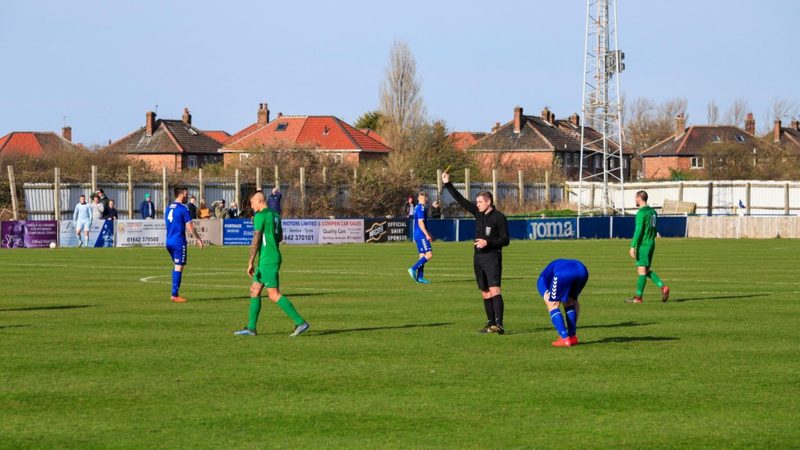
The football lawmakers International Football Association Board (IFAB) is set to introduce a blue card in football to the professional game as part of its sin-bin trials.
After the start of the yellow and red cards in the 1970 World Cup, the blue card will be the first new card introduced to football in more than 50 years.
It aims to revolutionize the sport by acting as a measure that will see players removed from the game for a duration of 10 minutes should they commit a cynical foul where they stop a promising attack or dissent at match officials.
The blue card is believed to also possibly have further implications for the game as players could now be sent off after receiving two blue cards in a match or a combination of a blue and yellow card.
Trials are expected to begin this summer although top-tier competitions will be excluded from initial testing. However, cup competitions could be used if volunteered by the country’s respective FA.
Blue cards were already being used as part of a sin-bin trial at grassroots-level football in Wales. That said, this measure wasn’t expected to be part of the professional game anytime soon but here’s a closer look at what it could mean to the game.
What is Blue Card in football?
The addition of the blue card to football will give referees more power to control a match by allowing them to issue it with the objective of cutting down on player dissent and preventing cynical or tactical fouls, which are often deemed unfair to the attacking team.
Once a player receives a blue card, he or she will miss out on match action for a duration of 10 minutes during which the guilty individual will be in a sin-bin and not be able to participate in the ongoing contest.
A sin-bin is essentially a box where the offending player will have to wait for a certain period of time and in football’s case - 10 minutes.
The concept of sin-bin is inspired from ice hockey and rugby where offending players are forced to sit out match action for a certain period of time after match officials have deemed them to have committed foul play.
In football’s case, the blue card can provide further ripple effects and change the dynamics of the game when factoring in the yellow and red card.
This is because should a player receive two blue cards, it would result in an automatic red, resulting in the player’s complete removal from match action for the remainder of the game. Additionally, a combination of a yellow and blue card would also lead to a red.
Last year, the Portuguese FA introduced the white card to the game to promote better sportsmanship and fairplay in the game.
However, the blue card looks poised to add a new element to football after more than half a century.
Photo credit: Alamy























